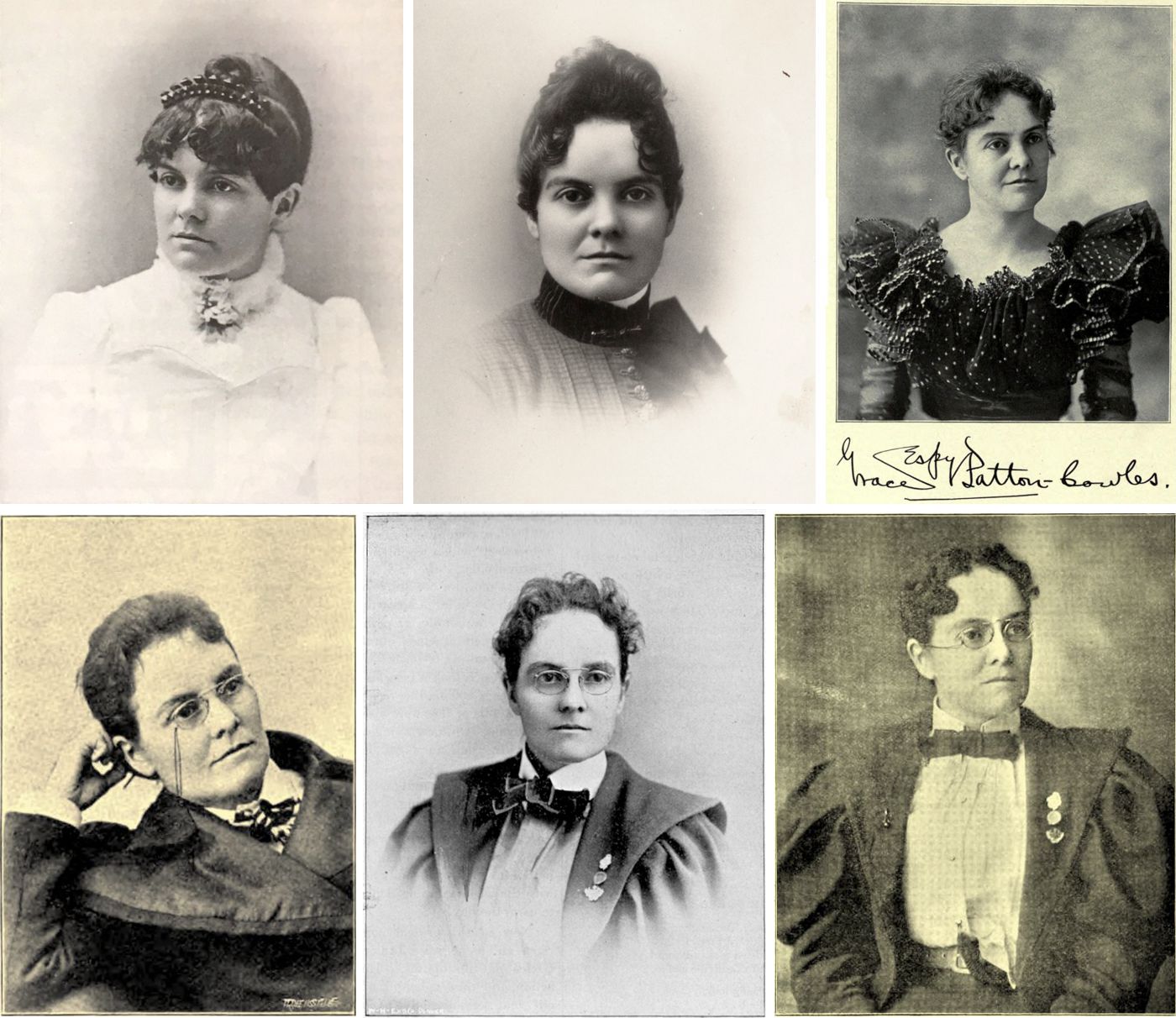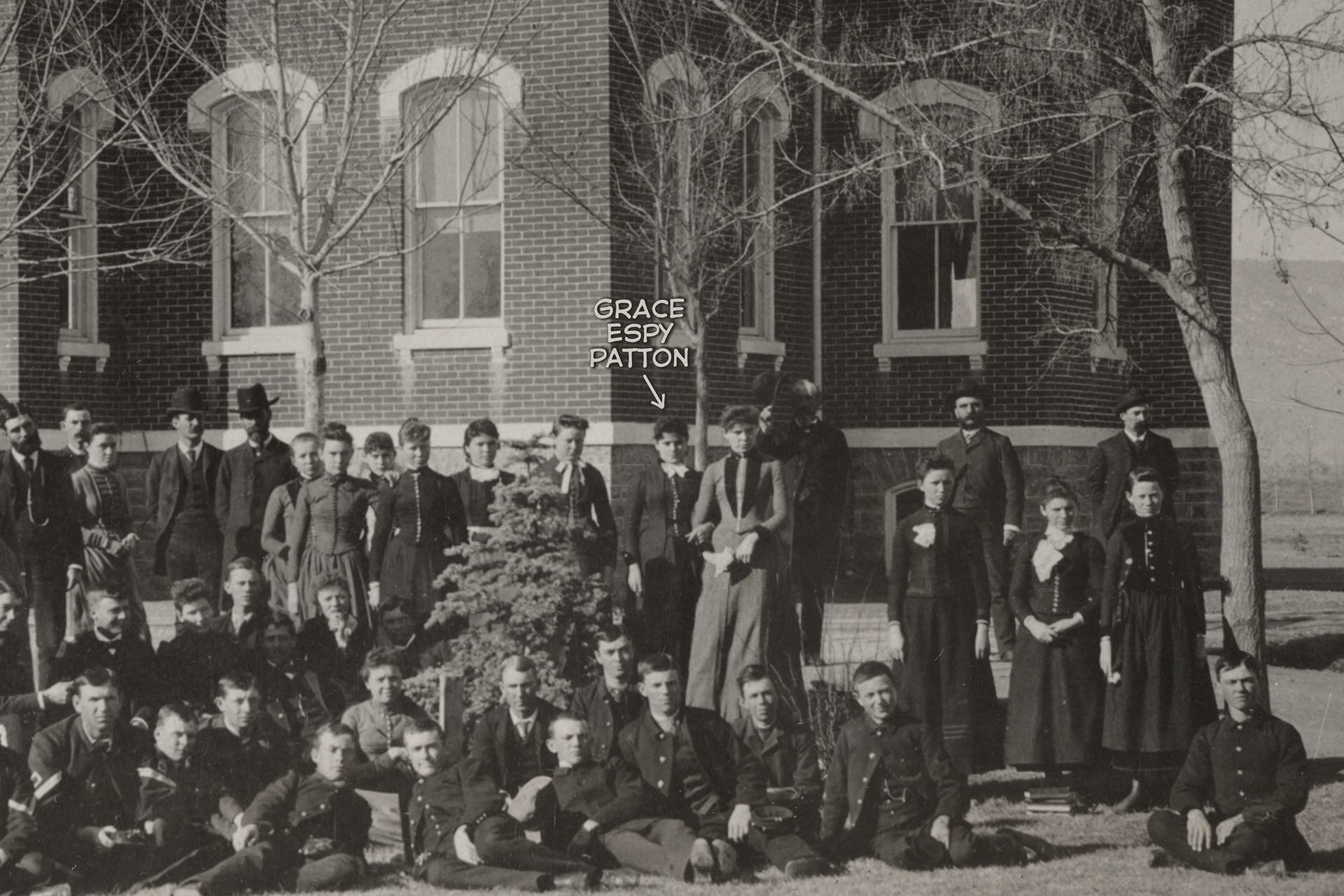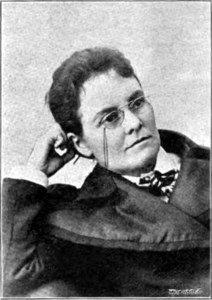
Grace Espy Patton through the years.
Grace Espy Patton was perhaps the most accomplished and best-known of Colorado Agricultural College graduates in the closing years of the 19th century.
Patton was the daughter of a Fort Collins farmer who also served as the city’s second mayor. She was a member of the College’s second graduating class, a class which, contrary to some assumptions about CSU’s early history, included five women and just one man. According to the Fourth Annual Register of the Officers and Students and Courses of Instruction, classes enrolled at the College in 1883 and 1884 included more female students than males, in an era before the “Ladies Course” had begun, when all students took essentially the same coursework.
In September 1885, Patton became the second graduate hired by the College as an instructor. Libbie Coy had been the first, hired into the Preparatory Department after her 1884 graduation, where she taught for two years. Elizabeth Gilmore Bell was the first female professor, hired the month before Patton to teach “English language and modern languages.” According to Board of Agriculture minutes, “it was felt having a female teacher was a good move and would improve the instruction received by the young women.”
While initially hired as an instructor in agriculture, Patton’s responsibilities quickly expanded to include teaching zoology, physiology, microscopy, chemistry, drawing, and doing “type writer” work. Her position was codified a few years later as professor of English and sociology, and in 1891 she became chair of the English and Stenography Department.
Advocate for women’s suffrage

Grace Espy Patton with students and faculty in front of Old Main in 1886.
During her time at the College, she also was an advocate for women’s suffrage in Colorado and quickly became an in-demand public speaker. She founded a magazine, The Tourney, that examined current issues. It evolved into The Colorado Woman, an early feminist journal focused on “all women’s work, literary, educational, political, philanthropic, and scientific.” The Denver Post called her periodicals “a real innovation” describing them as “the nucleus of woman suffrage in Colorado.”
When a statewide referendum passed in 1893 to prohibit discrimination against women voting, Patton reputedly was the first woman in Fort Collins to register to vote. She remained active in the national women’s suffrage movement and was an ally and friend of pioneering suffragist Susan B. Anthony.
Patton’s knowledge of and passion for public education culminated in a successful statewide campaign in 1896 — the first statewide election since Colorado women received the right to vote — to become the state’s superintendent of public instruction. She actually received more votes in the general election than did Governor-elect Alva Adams, and was the second woman to serve in that role.
After the election, a nationally syndicated newspaper article about Colorado women who’d been elected to office that year quoted Patton saying, “In these days it is a good thing to be a woman, but better still to be a Colorado woman.”
During her time in office, Patton cultivated a positive relationship with local newspapers — the Denver Post and Rocky Mountain News — which covered her professional activities and some of the decisions she was called upon to make. Among those was whether a woman who publicly smoked cigars should be issued a certificate to teach (yes); whether aspiring teachers who did not pass the teachers’ exam could appeal on the basis that the questions were too hard (no); and whether parents in one part of a district could dismantle and move a school to another part of the district (decision unknown).
In 1898, Patton married Warren Hayden Cowles, a military man whom she’d met at the College in Fort Collins. That precipitated one of the loudest controversies of her term as superintendent of public instruction: Some claimed “Mrs. Warren Cowles” was not the same as “Grace Espy Patton,” whom the voters had elected. The state attorney general ruled she should continue to use the name “Grace Espy Patton” in her official capacity, which she had been doing all along.
She chose not run for a second term. Instead, she accompanied her husband to Manila, where she became a correspondent for newspapers in Denver and Chicago, sending back dispatches that were syndicated in papers across the country.
First LGBT professor?

Despite her marriage — about which Susan B. Anthony expressed surprise in a letter to Patton — circumstantial evidence exists to at least suggest Patton may have been the College’s first LGBT student and professor. Photos of her as a student show a traditional-looking young woman of the era, with a frilly collar and hair piled high on her head. Later photographs of her as a professor and candidate for public office show her with close-cropped hair, pince-nez perched on her nose, wearing a dark jacket, white shirt and tie — a decidedly masculine look.
While at the College, Patton was a favorite among students and frequently was mentioned in the Rocky Mountain Collegian, which published her essays and occasionally mentioned her in humorous columns. One asked “Wouldn’t it be funny … if Prof. Grace Patton would get married?” Two-and-a-half years later when Patton did marry, the Collegian announced, “Grace Espy Patton, ’85, has taken unto herself a husband. What she wanted with one, we cannot imagine, but it is the unexpected that always happens.”
And an 1897 article in the Colorado School Journal during her tenure as superintendent of public instruction refers to a reception hosted by Patton and her deputy, Mary Holland Kinkaid, at “their Denver home on Pennsylvania Avenue.”
Nearly half a century later, while researching Mile-High College (an unpublished history of Colorado State written to mark the 75th anniversary of what then was known as Colorado A&M), drama professor and author Ruth Jocelyn Wattles sent a letter to the State of Colorado Department of Education inquiring about “a very interesting diary” that “tradition says” Patton kept while superintendent of public instruction. Unfortunately, the department was “unable to secure any information whatsoever concerning this diary.”
So we’re left to wonder.
However she may have understood herself, Grace Espy Patton was known as one of the trailblazers who helped shape not only the early College and the local community, but the roles women played, the rights they enjoyed, and how they were regarded in Colorado and, increasingly, across the nation.
Still a rising star at just 37 years of age, Grace Espy Patton unexpectedly passed away in 1904, after a brief illness while with her husband at Fort Assiniboine, in northern Montana. In her obituary the Denver Post called her “one of the best known women in the West,” and said, “No woman of Colorado has left a more indelible impression upon the people, the laws and sentiments.” She was buried at the Mount Olivet Cemetery in Denver.
Read more stories about the College of Health and Human Sciences in this series celebrating the 150-year history of Colorado State University.
From ‘Domestic Science’ to innovative research: College of Health and Human Sciences
Video: Award-winning Legacies Project records personal and professional histories
Nancy Richardson Design Center was a busy hub of collaboration, innovation in first year
